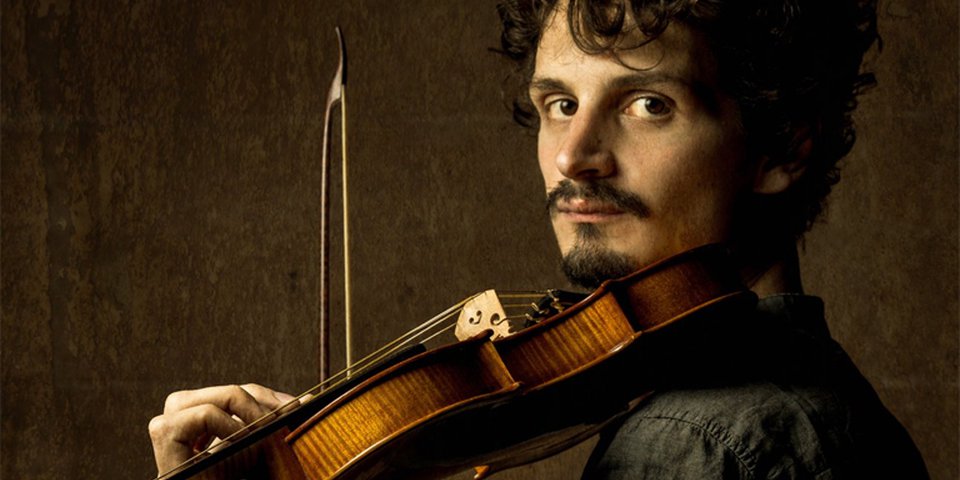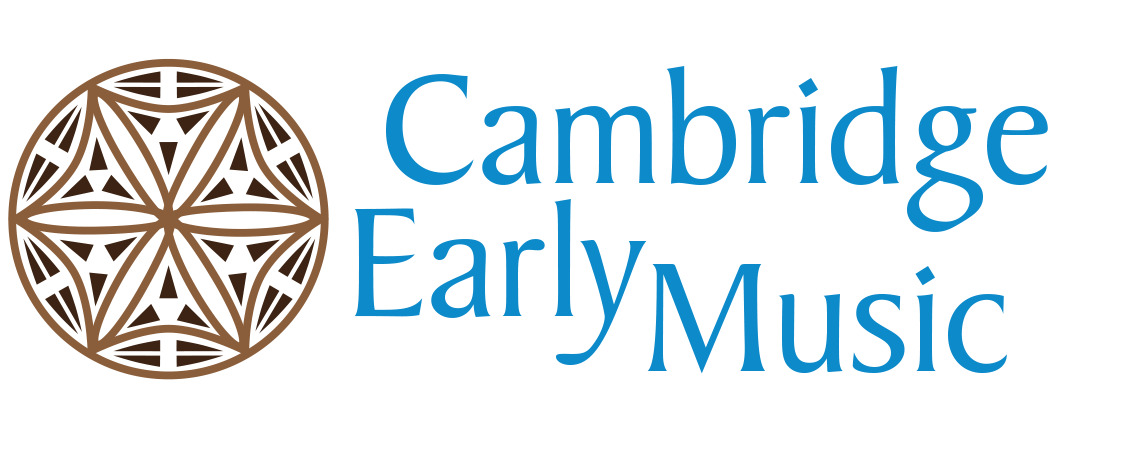Member of El Gran Teatro Del Mundo (hear them on 16 November).

What were your first musical experiences as a child?
I was born into a family of musicians: my father plays the lute and guitar, my mother and older sister are both singers. So from an early age I heard music in the house, almost without realising it. When I was around 5 years old, my dad came home with the latest CD of his early music ensemble, I Sonatori de la Gioiosa Marca, with Giuliano Carmignola as soloist. The CD was ‘Le Humane Passioni’, with concertos for violin and orchestra by A. Vivaldi. My dad put it in the stereo to listen to it. Hearing the sound of that violin, so soft, light and at the same time so human and warm, I fell in love with it. A few months later, I asked Santa Claus to bring me my first violin (which I still jealously guard in a wardrobe) and that is where it all started.
Who has been the biggest musical influence on your life?
I would say my family. Besides the experience with my dad, the closeness to singing that came from my mum was also crucial. I often went to hear the lessons she gave at a private school, where I not only heard repertoire that was new to me, but also became aware of how a voice should be set, what makes it resonant and round without pushing (elements that I then constantly tried to bring back to the violin). I also remember very often going to hear the rehearsals my mother used to have with the choir she conducted, where I listened to motets by Monteverdi, Bach, Bruckner etc. These pieces were indelibly printed in my mind, so much so that even today I know them practically by heart.
What music do you enjoy listening to outside of work and performance?
I try to keep myself fairly flexible and intrigued by a bit of everything. However, I admit to having a soft spot for blues-rock from the 60s and 70s, which I listen to whenever I have some free time. In addition, Bob Dylan has been an element of great inspiration and curiosity over the years, because of his ability to evoke thoughts, reflections, inner conflicts with the combination of a few words and very simple musical means (a voice, a guitar and a harmonica) but so human and complex.
What has been the most memorable performance you have given?
There are certainly some performances I have done in the past that I have enjoyed more than others, or felt more free or inspired. Sometimes the event itself moved me in a special way because of the situation, the moment, the audience, etc. However, I always prefer to look forward and think that my best performances will be those in the future, where I will have a more mature musical vision or an even closer and more intimate relationship with my instrument, or where my understanding with other musicians will be even deeper.
How did you come to be involved in this ensemble?
It was due to a whole series of coincidences in life. I met Miriam and Julio at the 2016-2017 edition of the European Union Baroque Orchestra (EUBO) and immediately found a great understanding, human even before musical, with them. With Julio I started playing as a duo (a duo that continues to this day) and we were also roommates in Basel together for two years. At that time, El Gran Teatro del Mundo already existed, and I followed the concerts and projects that came up little by little with great esteem and admiration. A few years later, El Gran Teatro was invited to play for the Urbino Festival in Italy. Coline Ormond, the violinist who played with them at that time, was not free, so they asked me to replace her. That concert, which was very touching and memorable for me, was the beginning of my collaboration with them. CEM AUTUMN SEASON QUESTIONNAIRE ANSWERED BY; CLAUDIO RADO, Baroque violin
Tell us about the instrument(s) you will be playing
I own two instruments. The first is an anonymous violin from the Neapolitan school of the 18th century. It is a small instrument in size but with a very ringing, almost electric sound, a very typical characteristic of the Neapolitan violinmaking school of the time. The other is an instrument with a baroque set-up built in 2013 by Franco Simeoni, an Italian luthier and an artist/craftsman whom I deeply admire. His instrument is the one I favour most and know best. I was its first owner and practically learnt with him how to ‘get the sound out’ of a violin mounted with gut strings. We practically grew up together. That’s also why I often think that when I play that violin, the sound I hear is the voice in my head, in which I recognise myself and recognise my personality.
What should the audience expect from your concert at CEM?
One of the things that excites me most about El Gran Teatro del Mundo is the ability to always live the piece being played in a profound way. Concerts are not just a repetition of what has been decided and studied during rehearsals, but are one more opportunity to create music and experiment with it from a written score. In some ways, making music with El Gran Teatro is more like a Jam Session than a classical music project as we have been accustomed (often in a limited way) to conceiving it. A lot of space is given to improvisation, to coming up with new ideas live, to the back-and-forth between the musicians. So I would say that the audience should expect connection between members, flow, emotional ‘presence’ etc.
What is your favourite part of this programme?
The programme is very varied, there is the typically Italian and theatrical style of Vivaldi, the more learned and contrapuntal style of Telemann, the already ‘galant’ style of Josep Pla etc. It is difficult to find a favourite moment in the programme. Let’s put it this way: what I will be most excited and intrigued to see is how the ensemble changes shape and nature during such a polychrome programme.
Do you have connections to Cambridge?
I have only been to Cambridge once, with the European Union Baroque Orchestra and conductor-cembalist Lars Ulrik Mortensen, during a concert tour in 2017. Unfortunately I spent very little time in the city but I have very good memories of it, it seemed to me a city full of history and at the same time very ‘fresh’. In any case, I remember how excited I was in those days to be part of that orchestra and that project, which was truly life-changing for me.
Which other concerts at this year’s CEM would you most like to attend and why?
Very difficult question, which I dare not answer. The season is full of completely different stimuli. If I lived in Cambridge, I think I would go and listen to all the concerts and try to get as close as possible to the language of each programme, to grasp the sensibility of whoever wrote that music and whoever is playing and reliving it at that moment. It would be great food for thought, not only artistically but also humanly.
